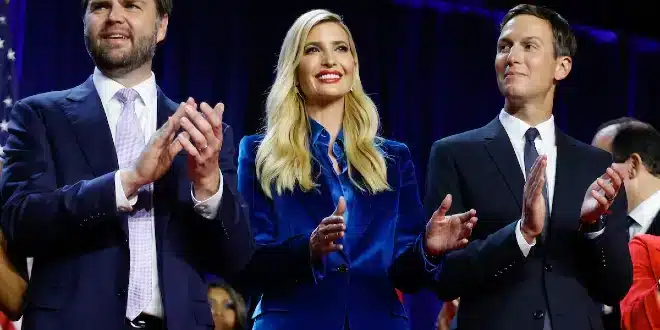An aide close to Israeli Prime Minister Benjamin Netanyahu recently informed U.S. President-elect Donald Trump and his adviser Jared Kushner that Israel is working swiftly to establish a ceasefire agreement in Lebanon, according to three Israeli officials cited by the Washington Post.
Israeli officials stated the goal is to offer Trump an early foreign policy achievement. Ron Dermer, Israel’s strategic affairs minister, began his U.S. visit at Mar-a-Lago on Sunday, where he briefed Trump before heading to the White House to discuss Lebanon with Biden administration officials. This reflects the fast shift in the U.S. political landscape after Trump’s victory.
“There is an understanding that Israel would like to give Trump something … that by January, a ceasefire with Lebanon could be in place,” an Israeli source said.
While Trump has expressed a desire to end Middle East conflicts, he recently told Netanyahu to “do what you have to” regarding Hezbollah and Hamas.
In a statement, Netanyahu shared he had recently spoken with Trump multiple times, noting “significant opportunities for Israel, especially in advancing peace,” despite the recent escalation in Lebanon and a protracted conflict in Gaza. According to Israeli officials, Netanyahu was preparing for this shift in U.S. leadership well before the election, with consistent communication between his administration and Trump’s team.
During their recent meeting in Florida, discussions centered around a ceasefire proposal for Lebanon involving coordination with the West and Russia. Should negotiations fail, Israel is also preparing to intensify its ground operations in Lebanon, an Israeli military source confirmed.
Key terms in the potential deal would involve Hezbollah pulling back north of the Litani River, with Lebanese forces assuming control of the border zone for an initial 60-day period under U.S. and British supervision. Sources close to Hezbollah indicated it may agree to withdraw fighters as part of a temporary truce, though it insists on barring Israeli military presence within Lebanon.
Observers believe Netanyahu may aim to secure a preliminary deal under Biden, leaving a final resolution for Trump to conclude.
The proposed arrangement aligns with Trump’s commitment to ending Israel’s multiple-front war, yet has not been officially presented to Hezbollah, and it includes a clause allowing Israel to act across the border if violated — a condition Lebanese officials strongly oppose.
Nabih Berri, Speaker of the Lebanese Parliament and a Hezbollah ally, responded sharply, questioning any agreement that would prioritize Israeli interests over Lebanon’s sovereignty.
Hezbollah has similarly stressed that any advancement in talks would hinge on a guarantee barring Israeli military incursions.
The timing of Netanyahu’s proposal appears strategic, as recent criticism has targeted him for prolonging and widening the conflict. Israel’s military, meanwhile, has continued to hit Lebanese targets, though it asserts that Hezbollah’s capability to threaten Israel has been severely impaired since the conflict began.
Dermer has since met with Biden officials, including U.S. envoy Amos Hochstein, to discuss the ceasefire. A U.S. official noted that negotiations are still led by Biden’s team, and progress is ongoing.
Russia has emerged as a significant factor in the discussions, with Israel seeking its cooperation to prevent Hezbollah from resupplying via Syria. Russian officials met with Israeli counterparts on October 27, with Dermer making a follow-up visit to Russia last week. The Biden administration has indicated Russia will not directly enforce or monitor any ceasefire, though some suggest Moscow’s role may expand under Trump’s leadership.
In tandem with diplomatic efforts, Israel’s military is gearing up for further ground action should talks break down. Both Israel and Hezbollah view battlefield outcomes as critical to shaping any political settlement, with Lebanese Prime Minister Najib Mikati affirming this as the decisive factor in political negotiations.


